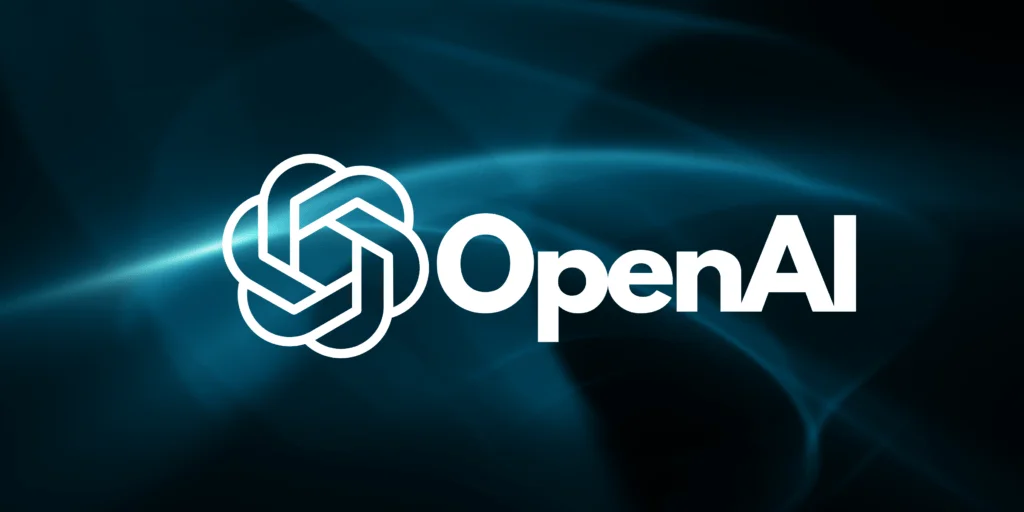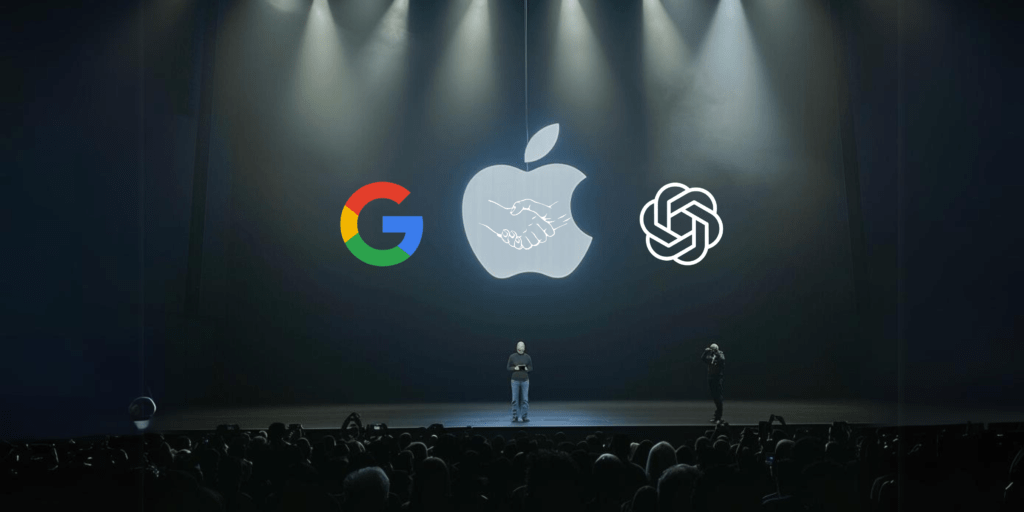iOS 18, the tech giant, is reportedly navigating through a series of strategic discussions with some of the most influential names in artificial intelligence, including Google, OpenAI, and Anthropic.
These talks, aimed at integrating generative AI capabilities directly into iOS, mark a significant pivot in Apple’s approach to artificial intelligence, blending its renowned hardware prowess with cutting-edge AI technologies.
Bloomberg’s Mark Gurman sheds light on the potential collaboration, particularly highlighting the integration of the Gemini system to facilitate a chatbot within the operating system, underscoring Apple’s commitment to staying at the forefront of technological innovation.
Amidst the backdrop of increasing scrutiny from the U.S. Justice Department over competition concerns, Apple’s foray into external AI partnerships not only reflects a strategic maneuver to enhance its operating system’s capabilities but also signals a broader industry trend towards more intelligent and interactive technology.
This introduction sets the stage for a deeper exploration into the implications of these partnerships, the strategic rationale behind Apple’s AI pursuits, and the potential transformations within the tech landscape that may follow.
Apple’s Potential Partnerships
Google and Gemini the possibility of incorporating Google’s Gemini generative AI technology into the iPhone hints at a significant technological leap. Gemini could empower the iOS ecosystem with advanced chatbot functionalities, making interactions more intuitive and information more accessible to users.
This partnership could deepen the existing relationship between Apple and Google, building on their current agreements, such as making Google Search the default on Apple devices—a deal reportedly worth $18 billion annually.
OpenAI and ChatGPT The consideration of OpenAI’s ChatGPT for iOS 18 suggests Apple is keen on embedding conversational AI that can understand and respond to user queries with remarkable accuracy.
OpenAI’s prowess in language models could provide iOS users with an unmatched AI chat experience, potentially transforming how users engage with their devices on a daily basis.
Anthropic and AI Ethics Discussions with Anthropic, known for its focus on safety and ethics in AI, indicate Apple’s commitment to addressing the ethical and privacy concerns associated with AI.
This collaboration could ensure that the integration of AI into iOS not only enhances functionality but does so in a manner that aligns with Apple’s longstanding emphasis on user privacy and ethical technology use.
Strategic Benefits These partnerships could offer Apple several strategic advantages. They could accelerate the integration of AI into the iPhone, allowing Apple to maintain its competitive edge in an increasingly AI-centric tech landscape.
Leveraging external AI expertise could help Apple navigate the significant costs and complexities associated with developing and running cloud-based AI technologies.
Developer Involvement Beyond enhancing the iPhone’s capabilities, allowing developers to build generative AI systems into the platform could usher in a new era of app development. This move could unleash a wave of innovation within the App Store, offering users a broad array of AI-powered applications and services.

Strategic Implications
Enhancing Competitive Edge At its core, Apple’s venture into external AI collaborations underscores an urgent need to bolster its competitive edge in an increasingly AI-driven industry.
As competitors like Google and Samsung aggressively integrate AI into their products, Apple’s move to infuse iOS with advanced AI capabilities through partnerships could help maintain its status as a technological leader and innovator.
Revenue Opportunities and Premium Status By integrating third-party AI technologies into its operating system, Apple opens new avenues for revenue generation.
These partnerships allow Apple to offer premium AI features, potentially creating new subscription services or enhancing existing ones. This strategy aligns with Apple’s broader shift towards service-based revenue streams, complementing its hardware sales.
Addressing Ethical and Privacy Concerns Collaborating with companies known for their commitment to ethical AI, like Anthropic, allows Apple to address growing concerns around privacy and ethics in AI deployment.
Apple’s brand has long been associated with prioritizing user privacy and security; incorporating AI in a manner that aligns with these values could strengthen consumer trust and loyalty.
Mitigating Development Costs and Complexity Developing and maintaining cutting-edge AI technologies in-house is a resource-intensive endeavor.
By partnering with established AI firms, Apple can leverage its expertise and infrastructure, saving on the substantial costs associated with running cloud-based AI systems. This strategy allows Apple to focus its resources on other innovative projects and core competencies.
Quick Integration for Timely Market Response The tech industry’s rapid evolution demands swift adaptation and innovation. Through these AI partnerships, Apple can quickly integrate advanced AI features into iOS, responding to market demands and consumer expectations for smarter, more capable devices.
Developer Ecosystem Expansion Enabling developers to incorporate generative AI into their apps opens up vast possibilities for innovation within the App Store. This move not only enriches the iOS ecosystem with a wider range of intelligent applications but also solidifies Apple’s platform as a leading destination for developers seeking to create cutting-edge AI solutions.
Regulatory Considerations and Antitrust Implications: As Apple navigates potential partnerships and AI integration, it must also consider the regulatory landscape, especially given the ongoing scrutiny from antitrust authorities.
Collaborating with other tech giants could draw further attention from regulators, requiring Apple to carefully balance its strategic ambitions with compliance and ethical considerations.

Apple’s AI Ambitions
Apple’s strategic pivot toward embedding advanced artificial intelligence (AI) into iOS 18 through potential partnerships with AI pioneers like Google, OpenAI, and Anthropic illuminates the company’s ambitions to lead in the AI domain.
These ambitions are unfolding against a backdrop of heightened regulatory scrutiny, particularly from the U.S. Justice Department, which has raised antitrust concerns.
This complex scenario underscores the challenges and considerations Apple must navigate to realize its AI ambitions while adhering to regulatory expectations and maintaining competitive integrity.
Regulatory Challenges and Antitrust Concerns
- Apple’s potential collaborations on AI come at a time when the company is under the microscope for its market practices. The U.S. Justice Department’s antitrust lawsuit against Apple alleges monopolistic behaviors, including restrictive app store terms and a “walled garden” approach that controls every aspect of its devices. These accusations spotlight the delicate balance Apple must strike between innovation and compliance with legal and ethical standards.
- The scrutiny extends beyond Apple, touching on its prospective partners. For instance, Google’s search engine dominance, bolstered by its default status on Apple devices, has also been criticized. Any AI partnership between Apple and Google might further complicate this dynamic, drawing regulatory eyes to how such collaborations could impact market competition and consumer choice.
Strategic Responses to Regulatory Pressures
- Apple’s interest in AI partnerships may also be interpreted as a strategic maneuver within this regulatory context. By collaborating with external AI experts, Apple can diversify its AI offerings and potentially mitigate monopolistic concerns by demonstrating a willingness to work with multiple partners rather than monopolizing AI advancements.
- Engaging with companies like Anthropic could serve as a proactive measure to address ethical and privacy concerns associated with AI, showcasing Apple’s commitment to responsible AI development. This could mitigate regulatory concerns and bolster Apple’s reputation as a company that values user privacy and ethical technology use.
Navigating the Competitive Landscape
- As Apple plans its foray into AI, the competitive landscape is a critical consideration. Its main rivals are also aggressively pursuing AI, with Google integrating AI into its Pixel devices and Samsung enhancing its Galaxy series with AI features. Apple’s AI strategy, therefore, needs to not only address regulatory concerns but also ensure that it remains competitive in a market that increasingly values AI capabilities.
- The pursuit of AI integration into iOS 18 reflects Apple’s acknowledgment that the future of technology is inseparably linked to AI. By adopting AI, Apple aims to enhance user experiences and open new technological frontiers, from improved Siri functionalities to more sophisticated app interactions and beyond.
Looking Forward
- As Apple prepares for WWDC 2024, the unveiling of iOS 18 will be particularly noteworthy, not just for the features it introduces but also for the statement it makes about Apple’s direction in the AI space. Apple’s handling of AI integration—balancing innovation with ethical, privacy, and regulatory considerations—will likely set precedents for the tech industry.
- Apple’s AI ambitions, therefore, are not just about technological advancement but also about navigating the complexities of modern tech regulation. Successfully integrating AI into iOS while addressing the concerns of regulators and competitors alike will require a nuanced strategy, underscoring Apple’s role as a leader in ethical and innovative technology development.
Competitive Landscape
The integration of AI into mobile operating systems is not unique to Apple. Google and Samsung have already embarked on similar paths, embedding AI into their devices and services.
Google’s use of AI in its Pixel devices and Samsung’s Galaxy AI features, powered by Google’s technology, exemplify this trend. Apple’s entry into this space signifies its intention to not just catch up with but potentially surpass its competitors by leveraging its ecosystem and user base.
By considering partnerships with Google for Gemini AI, OpenAI for ChatGPT capabilities, and Anthropic for ethical AI, Apple is positioning itself to offer a unique blend of AI features that could set iOS apart.
These partnerships could enable Apple to offer a wide range of AI-driven functionalities, from generative chatbots to ethical AI applications, providing a comprehensive AI experience that might be hard for competitors to match immediately.
Despite its potential collaborations, Apple is also rumored to be developing its in-house AI capabilities, including an AI chatbot and a large language model codenamed Ajax.
These efforts suggest that while Apple is open to partnerships, it is also keen on building a proprietary AI infrastructure, which could offer unique advantages in terms of integration, privacy, and user experience.
One of the strategic advantages of Apple’s approach is the potential for enhanced on-device AI, minimizing reliance on cloud computing and addressing privacy concerns.
Apple’s emphasis on processing data on the device rather than in the cloud aligns with its longstanding commitment to user privacy and could offer superior performance and responsiveness for AI applications.
The incorporation of generative AI technologies like ChatGPT into iOS could revolutionize user interactions, offering more natural and intuitive ways to communicate with devices.
These advancements could lead to a new era of personal computing, where devices understand context and intent more accurately, providing personalized and adaptive responses.
Partnering with Anthropic highlights Apple’s focus on ethical AI development. As AI technologies become more pervasive, ethical considerations, including bias mitigation and user privacy, are increasingly important.
Apple’s commitment to these principles could enhance consumer trust and set a new standard for AI integration in consumer technology.
Apple’s foray into AI sets high expectations for what smartphones can do, potentially shaping consumer demands and driving competitors to accelerate their AI initiatives. As consumers become accustomed to more sophisticated AI features, the technology could become a key factor in device selection and brand loyalty.
Allowing developers to integrate generative AI into iPhone apps could unleash a wave of innovation, creating new categories of applications and services that were previously unimaginable. This could not only enrich the iOS ecosystem but also stimulate broader technological innovation in the AI space.
WWDC 2024 and Beyond
Apple is expected to reveal its plans for iOS 18, with a particular focus on the integration of generative AI features. Speculation suggests that this could include partnerships with leading AI firms like Google, OpenAI, and Anthropic, potentially introducing capabilities such as advanced chatbots, ethical AI considerations, and more personalized, intuitive user interactions.
A significant portion of the conference will likely be dedicated to developers, with Apple unveiling new tools and APIs for integrating AI into iPhone and iPad apps. This opens up vast possibilities for innovation within the App Store, encouraging developers to create apps that leverage AI in novel ways.
Enhanced User Experiences: The integration of AI into iOS 18 promises to redefine user experiences. Expect smarter, more context-aware applications, improvements to Siri’s functionality, and new forms of interaction that make technology more accessible and intuitive.
With Apple’s strong stance on privacy, the company’s approach to AI integration will be closely watched. Apple will likely emphasize on-device processing to align with its privacy commitments, setting new standards for how AI can enhance user experiences without compromising security.
Apple’s announcements at WWDC 2024 will have ripple effects across the tech industry, pushing competitors to accelerate their own AI initiatives. The focus will be not just on matching Apple’s AI features but also on distinguishing its offerings in a rapidly evolving market.
The developer ecosystem around iOS is set for a transformation. As AI becomes a core component of iOS, developers will have new tools and platforms to innovate upon. This could lead to a surge in AI-driven app development, changing the landscape of the App Store and how we think about mobile apps.
Apple’s foray into AI with iOS 18 will also contribute to the ongoing conversation around ethical AI development. By partnering with companies like Anthropic, Apple can play a significant role in shaping the standards for responsible AI, influencing not just the tech industry but societal norms around technology use.
Beyond iOS, Apple’s integration of AI will likely extend to other aspects of its ecosystem, including iPadOS, watchOS, and macOS. This holistic approach could lead to a more unified, AI-driven experience across all Apple devices.
Future hardware releases from Apple, including the iPhone, iPad, and Mac, will likely be designed with AI in mind, featuring more powerful processors capable of handling advanced AI tasks. This could usher in new device capabilities, further blurring the lines between hardware and software.
Apple’s AI initiatives have the potential to set new global standards for technology. As AI becomes more deeply integrated into everyday devices, its impact on society, from education to healthcare to entertainment, will be profound, raising important questions about accessibility, equity, and the role of technology in our lives.

Conclusion
Apple’s foray into AI, while ambitious, remains grounded in the company’s core values of privacy, security, and user-centric design. The strategic collaborations under consideration signify Apple’s commitment to maintaining its edge in innovation while addressing the ethical and practical challenges of AI.
This careful balance between forging new paths in AI and safeguarding user trust exemplifies Apple’s nuanced approach to technology development.
The potential integration of AI into iOS 18 is not just a milestone for Apple but a beacon for the entire tech industry.
By potentially partnering with AI powerhouses and emphasizing ethical AI use, Apple is poised to set new standards for how technology companies should integrate AI into consumer products. These developments could catalyze a shift towards more responsible.
User-friendly AI across the tech landscape influences how companies approach AI development and integration.
Apple’s AI ambitions extend beyond its own products, offering a treasure trove of opportunities for developers. By enabling the integration of generative AI into apps, Apple is not only enhancing the capabilities of its ecosystem but also empowering developers to create innovative, AI-driven solutions.
This democratization of AI technology promises to enrich user experiences, opening up new possibilities for personalized, intelligent interactions across various applications and services.
As Apple navigates the complexities of AI integration, the company’s moves are watched by users, developers, and competitors alike.
The journey ahead is fraught with challenges, from addressing privacy and ethical concerns to managing regulatory scrutiny. Yet, Apple’s careful, considered approach to these challenges underscores its role as a leader in technological innovation and ethical responsibility.
The potential unveiling of AI capabilities in iOS 18 at WWDC 2024 marks the beginning of a new chapter in technology, one where AI becomes an integral part of our daily digital interactions.
As Apple continues to explore the frontiers of AI, its efforts will likely shape the future of personal computing, influencing how we interact with technology, how we value our privacy, and how we envision the role of AI in our lives.
Apple’s exploration into AI, set against the backdrop of potential groundbreaking partnerships, represents a pivotal moment not only for the company but for the entire tech industry.
As we look ahead to WWDC 2024 and beyond, Apple’s AI initiatives promise to redefine the landscape of personal technology, heralding a future where AI enhances every facet of our digital experience.


